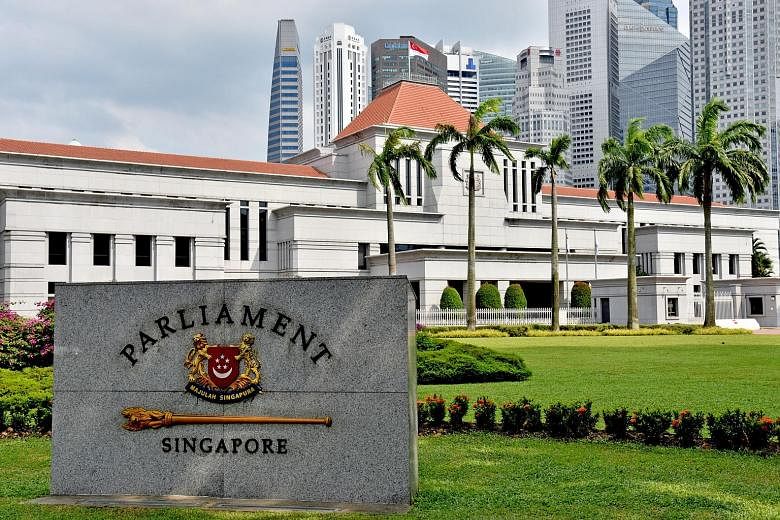Trust in public institutions, like the Government or the media, is essential in creating an environment to share facts, with a belief in the authenticity of the sources, Home Affairs and Law Minister K. Shanmugam said in Parliament yesterday.
But "new media has been heavily exploited to batter this infrastructure of fact", which in turn weakens trust in public discourse, institutions and democracy itself, he said at the start of the debate on the Protection from Online Falsehoods and Manipulation Bill.
He expounded on three sources of online falsehoods: foreign countries using information warfare; those who seek commercial profit; and deliberate actors who send out falsehoods for political ends or to harm other groups.
Falsehoods from such groups "have been weaponised, to attack the infrastructure of fact, destroy trust and attack societies", he said.
First, the rules of war have changed, with some foreign countries using non-military measures like information operations to "harness the protest potential of the population", Mr Shanmugam said.
Such operations mean stoking opposition in a target country, to create a permanently operating front, he said, adding that such non-military measures can exceed the power of force and weapons.
"Even though military or overt violent measures are not being used, the target states' national security and sovereignty are threatened and violated," he said.
"The lines between war and peace have now been blurred."
Mr Shanmugam said experts who spoke to the Select Committee on Deliberate Online Falsehoods last year had noted that Singapore's military superiority in the region means it would be futile to start a war here.
"Militarily weaker countries will then focus on other means to weaken Singapore, sap our will from inside, create deep internal divisions to keep us in a permanent state of internal dissension," he said, adding that there have been attempts to weaken support for the Singapore Armed Forces or shift Singapore's foreign policy.
Another reason some spread falsehoods through new media is for profit, said Mr Shanmugam.
"Digital advertising models have turned websites into virtual real estate," he said. "With every click, digital ad revenue is earned."
Such a business model has created an "attention economy", with content that stokes fear and anger being good for attracting attention.
These falsehoods not only earn people large sums of money, but also have political impact, he said.
He cited the example of American Paul Horner, who set up at least 20 fake news websites with deceptive website addresses to trick readers into thinking they were reading from mainstream sources.
He made at least US$10,000 (S$13,600) a month from Google AdSense, said the minister.
One false article which said people were paid to protest against then US presidential candidate Donald Trump was retweeted by his campaign.
Other times, both local and foreign civilians spread falsehoods for political reasons or out of personal prejudices, affecting their own as well as other countries, said Mr Shanmugam.
He gave the example of the Brexit referendum in the United Kingdom, where immigration was a hot topic and many false claims and fake stories were concocted.
One of them was about how there were some areas where syariah law dominates and non-Muslims cannot enter.
While outlandish, 32 per cent in a survey of 10,000 people last year believed the falsehood about "no go" areas to be true.
It also created a permissive environment for hate, with a 41 per cent spike in hate crimes after the referendum, said Mr Shanmugam.


